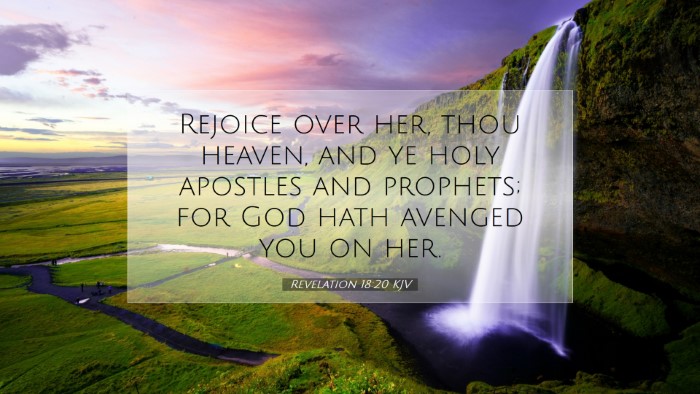Old Testament
Genesis Exodus Leviticus Numbers Deuteronomy Joshua Judges Ruth 1 Samuel 2 Samuel 1 Kings 2 Kings 1 Chronicles 2 Chronicles Ezra Nehemiah Esther Job Psalms Proverbs Ecclesiastes Song of Solomon Isaiah Jeremiah Lamentations Ezekiel Daniel Hosea Joel Amos Obadiah Jonah Micah Nahum Habakkuk Zephaniah Haggai Zechariah MalachiChapter
Revelation 1 Revelation 2 Revelation 3 Revelation 4 Revelation 5 Revelation 6 Revelation 7 Revelation 8 Revelation 9 Revelation 10 Revelation 11 Revelation 12 Revelation 13 Revelation 14 Revelation 15 Revelation 16 Revelation 17 Revelation 18 Revelation 19 Revelation 20 Revelation 21 Revelation 22Verse
Revelation 18:1 Revelation 18:2 Revelation 18:3 Revelation 18:4 Revelation 18:5 Revelation 18:6 Revelation 18:7 Revelation 18:8 Revelation 18:9 Revelation 18:10 Revelation 18:11 Revelation 18:12 Revelation 18:13 Revelation 18:14 Revelation 18:15 Revelation 18:16 Revelation 18:17 Revelation 18:18 Revelation 18:19 Revelation 18:20 Revelation 18:21 Revelation 18:22 Revelation 18:23 Revelation 18:24

